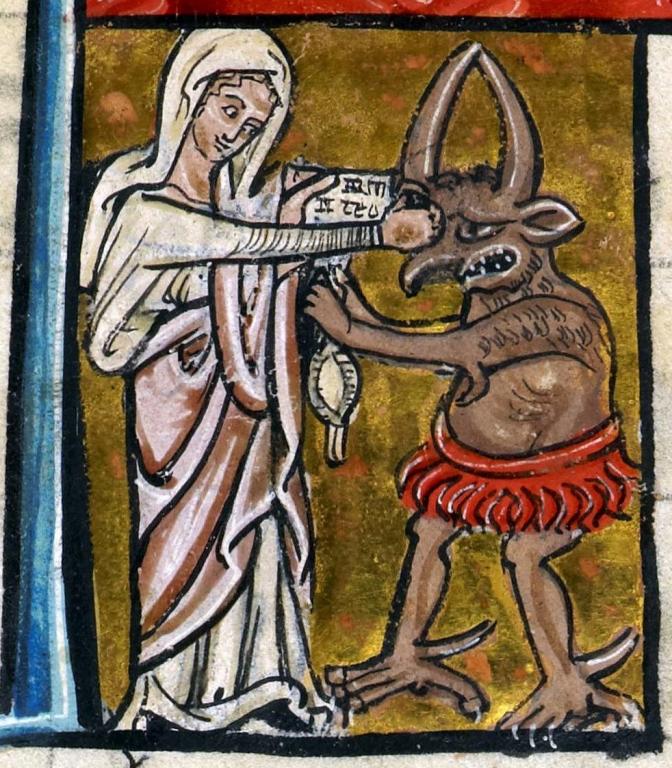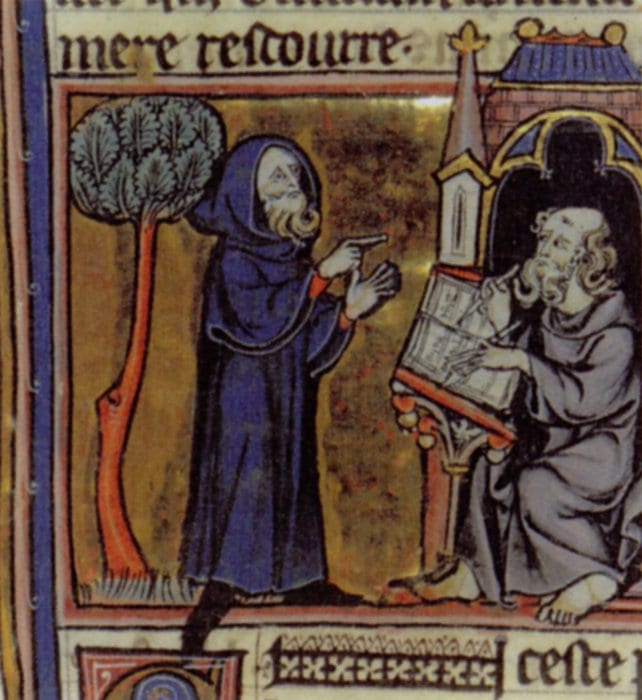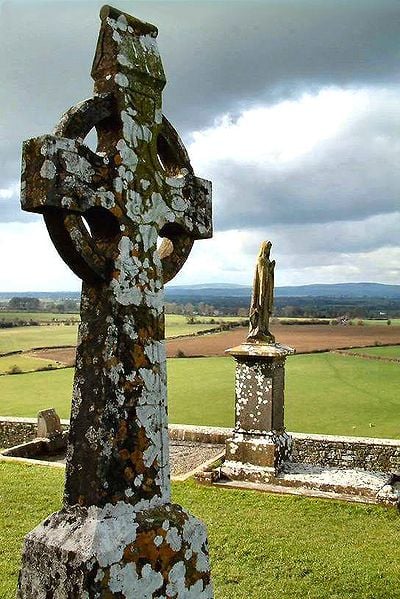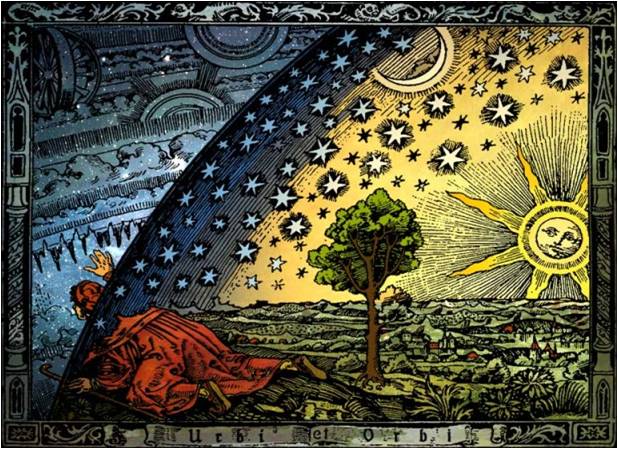Ordinary Time
4 September 2019
The Edge of Elfland
Concord, New Hampshire

Dearest Readers,
When I wrote about St. Edward’s School banning the Harry Potter series, I hoped this would be the last time for a while I would need to write in defense of the Harry Potter series. Don’t get me wrong, I’m happy to write about Harry Potter, but I prefer to examine and discuss the stories themselves, not bad reactions to them. Sadly, a reader has brought something to my attention that, while I could ignore, I find needs some refuting.
A few months ago, a certain Fr. David Nix of the Pilgrim Priest blog, wrote a post concerning the effects of Harry Potter on children. At the center of his post was a portion of an interview with Fr. Ripperger, a Catholic priest and exorcist. I want to begin with Fr. Ripperger’s words before getting to the rest of the blog post. Fr. Nix helpfully transcribed the relevant portion and linked to it here (go to the 57 minute mark to hear them yourself):
Every time I give a conference, people ask me about Harry Potter. JK Rowlings went to witch school before she wrote the books. The spells in the book are actual spells. How do we know that? Well, because witches tell us they’re real. And there was a woman in Spain who decided to try one of the spells of fire and it burnt her house to the ground. Now JK Rowlings has denied she’s a witch. Ok… You walk like one, you quack like one, you write books like one…One exorcist told me…60% of the names in Harry Potter are actual names of demons that exorcists have booted out of people. There is an exorcist I know who is a friend of mine. He and I are always comparing notes on Judas, because Judas is a hard guy to get out of people. [That exorcist] has had to exorcise three children just for reading the books. I had a case of possession. I wasn’t the one to liberate him; I started the case but I had to pass it to someone else because I had to move to another location of a person who was possessed by five demons who claimed that they were the demons who inspired JK Rowlings to write Harry Potter. So I tell people: Avoid it. All exorcists who are worth their weight—there’s only one guy who says it’s okay—there’s something wrong with that guy. But all the other exorcists I know who are experienced are clear: Stay away from it.
It is difficult to know where even to begin. Here again we have the same claim that the spells are real. But we add to it the claim that someone actually successfully burnt down their house. Two seconds of googling show that the woman effectively created bomb by trying to cook a potion. She certainly didn’t wave a wand and shout Incendio! Then we get the strange claim that the names of characters, as much as 60%, are the names of demons. First, do demons have names? Second, if they do, are they names like Hagrid or Albus or Harry or Ron? Nearly every name in Harry Potter can be traced back either to some mythological or supposedly magical creature or person. Those that can’t tend to have more symbolic meanings. Albus Dumbledore means white bumblebee, for instance. Then there is the strange claim that Judas is a demon. I have no idea what the source for this is, but to be clear, both metaphysically and theologically people do not become demons. As I said in my last letter, I tend to be sceptical of exorcists talking publicly about their jobs, the lack of facts or even attempts to get them from this priest continues to affirm I’m right in doing so.
But let’s move onto the post itself. The main impetus of the post surrounds the name of a character in Harry Potter who wrote the divination textbook Unfogging the Future (incorrectly called Hogwarts School of Witchcraft and Wizardy in the post). The authors name is Cassandra Vablatsky. It is likely this name is a play on Helena Blavatsky a Russian occultist and theosophist. Fr. Nix refers to her as a satanist, but no where on the wikipedia page to which he links is she so identified. It seems possible, Fr. Nix’s definition of satanism is anything that isn’t Christianity. Thus, all non-Christians are satanists because to be a satanist is to be a non-Christian. I find his issue even more interesting, however, precisely because divination as a subject is considered by all competent professors at Hogwarts as hogwash. So even if Blavatsky were a satanist properly speaking, she is the namesake of a character who has written what must be a largely false textbook, equivalent to astrology as we understand it today. So it is just as likely that Rowling is making fun of Blavatsky as it is that Rowling is somehow enshrining her.
The post ends with an email from a woman who reached out to Fr. Nix. She is a former Potter fan and recently returned to her Catholic faith. She recounts going to Universal Studies and considering buying a wand when she decides not to because why would she want such a toy, she’d rather have her rosary. I’m fairly certain she has set herself a false dilemma. More problematic is a point she makes about the unforgivable curses which first appear in the fourth book, Harry Potter and the Goblet of Fire. She notes that one of the curses is the Imperius curse. She links this to Imperative prayers used against demons, or so she cites from a book called Manual for Spiritual Warfare by Paul Thigpen. Here we see the principle correlation does not equal causation in action. Yes, there may be (this is well outside my theological expertise) an Imperative Prayer for commanding demons. But clearly, Rowling is using the term to mean command (which is actually also how the word imperative is being used in this imperative prayer). The imperative mood, grammatically speaking, is when a verb is used as a command. Tolle lege, take and read! Sit down! Behave! (Well now I’ve stumbled into parent mode). But you see the point, the Imperius curse is used to command people to do things. It is not used to summon demons, nor is that the natural conclusion to draw.
In the end, what we have here is a failure to read carefully, a failure to attend to facts, and a failure to look further into questions. Fr. Ripperger starts with the assumption Harry Potter is bad, hear’s a story or two that seems to confirm his presupposition and doesn’t look anymore closely at the stories to see whether or not their true. Fr. Nix doesn’t attend to the content of the stories and so make’s an assumption which could be exactly the opposite of reality. And the woman who emailed Fr. Nix failed to consider other possible interpretations of a word, but instead assumed J.K. Rowling had read Thigpen and was directly influenced by the “Imperative Prayer.” And this is what frightens almost more than exorcists making spectacles of themselves. At least two-thirds of the people in this blog post should know how to read a text carefully and that they should double-check any facts which confirm their bias. But instead we get bad readings, bad reporting, and ultimately, bad theology.
To quote from another famous literary character, “What do they teach in schools these days?”
Sincerely,
David Russell Mosley















